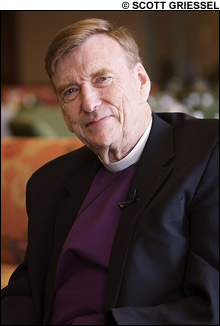When pro-choice forces signal their partial acceptance of the abortion-as-child-murder idea, says Ragsdale — which they do when they speak of the "tragedy" of abortion — they may be motivated by political concerns, or by a desire to be respectful and conciliatory. But in the process, they're ceding precious intellectual ground to abortion opponents, and backing themselves into a tactical corner: how, after all, can you effectively defend something for which you're simultaneously apologizing?
What's more, they're also increasing the likelihood that women who do choose to have abortions will spend their lives tormented by needless guilt. "I suppose it's possible for an intelligent, faithful person to still believe that there's no moral difference between a zygote and a baby," Ragsdale allows. "But there's no reason for most of us to believe that. And I don't."
Given Ragsdale's skepticism about the motives and logic of her critics, it's somewhat surprising that she doesn't unequivocally reject the possibility of abortion opponents and proponents finding common ground. In fact, she doesn't even reject the linkage of abortion with tragedy. But she has very particular ideas about how these intellectual maneuvers ought to be executed.
"If you want a baby," says Ragsdale, "and you've decorated the nursery, and bought the toys, and named the baby — and then they discover the baby's organs are growing outside the body, and not only will the baby not survive, but the woman will be torn up trying to deliver it — there's a tragedy. But the tragedy isn't the abortion — the tragedy is that you needed one.
"That's the tragedy in most cases," she continues. "That birth control failed, that they might want to have a baby but the economics are such that they can't possibly afford it, that we don't have healthcare, that women can't choose to have the babies they want. There's a tragedy."
At this point in our conversation, Ragsdale offers an anecdote that's meant to be illustrative. "My little brother had to have a stent put in his heart the other day. We thought there was no heart disease at all in our family, and all of a sudden, the doctor said, 'You're on your way to the ER now to have heart surgery.' It's bloody, it's messy, it's nasty. If you show pictures of it, it would gross you out, and I really would rather that he'd never had to have that. But is the heart surgery a blessing?" Here she laughs, loudly. "Damn straight."

IN HER CORNER: Retired bishop of Newark John Shelby Spong says of Ragsdale, “I think she’ll be a spectacular dean.” |
Pushing ahead
There is, in Ragsdale's own telling, something highly improbable about the path that brought her to where she is today: leader of a major Episcopal institution, walking embodiment of contemporary Episcopalian liberalism, right-wing bête noire. She got involved in progressive politics almost by accident, for example, landing an office-manager job at Common Cause Virginia after graduating from William & Mary University in Williamsburg, Virginia, and before heading to Virginia Theological Seminary (VTS) in Alexandria. Three days later, the executive director quit, and Ragsdale found herself lobbying the legislature in the state where she was born and raised.In 1985, one year into her studies at VTS, the bishop she had thought would ordain her died — and his replacement subsequently told Ragsdale that he didn't ordain lesbians. (At the time, Ragsdale says, she didn't even know that she was a lesbian.) So she eventually found someone who did — John Shelby Spong, then the Episcopal bishop of Newark, New Jersey, an iconic figure to aggressively liberal Christians of all stripes and a vocal champion of gay rights in the Episcopal Church.
Ragsdale's involvement with the abortion issue, too, seems almost accidental. Also in 1985, she began representing the Episcopal Women's Caucus on the board of the Religious Coalition for Abortion Rights (since re-named the Religious Coalition for Reproductive Choice). But at the outset, Ragsdale says, "I wasn't even particularly pro-choice. . . . I hadn't given it a lot of thought. Being a lesbian, it wasn't a big issue for me, personally."
Clearly, things have changed. And now, a quarter-century later, Ragsdale finds herself in a position somewhat reminiscent of that held by Gene Robinson back in 2003. To wit: depending on your point of view, the fact that Ragsdale is about to run an institution charged with shaping the minds of the Episcopal clergy is proof either of how far the Episcopal Church has come or how far it's fallen.
The Reverend Peter Frank — a spokesperson for the Pittsburgh-based Anglican Communion Network, which is attempting to create a parallel, conservative network of formerly Episcopal churches here in the US — is inclined to the latter view. "That a seminary of the Episcopal Church will be led by a priest who believes that abortion is a blessing and that Jesus was primarily a first-century progressive political activist is, sadly, not a surprise," Frank tells the Phoenix via e-mail. "The Rev. Katherine Ragsdale may be more vocal than most, but her opinions are not uncommon among Episcopal Church leaders."